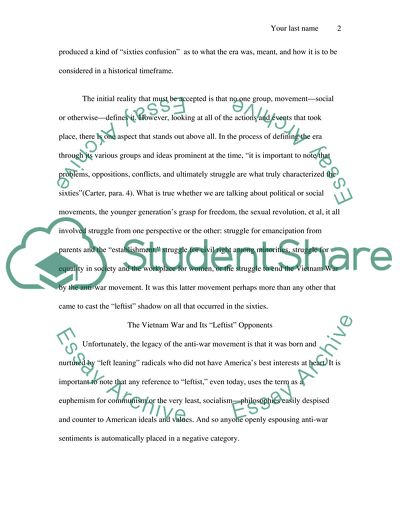Cite this document
(Political and Cultural Perspectives on the 1960s Research Paper, n.d.)
Political and Cultural Perspectives on the 1960s Research Paper. Retrieved from https://studentshare.org/politics/1736495-the-1960s-influence-on-america
Political and Cultural Perspectives on the 1960s Research Paper. Retrieved from https://studentshare.org/politics/1736495-the-1960s-influence-on-america
(Political and Cultural Perspectives on the 1960s Research Paper)
Political and Cultural Perspectives on the 1960s Research Paper. https://studentshare.org/politics/1736495-the-1960s-influence-on-america.
Political and Cultural Perspectives on the 1960s Research Paper. https://studentshare.org/politics/1736495-the-1960s-influence-on-america.
“Political and Cultural Perspectives on the 1960s Research Paper”, n.d. https://studentshare.org/politics/1736495-the-1960s-influence-on-america.


